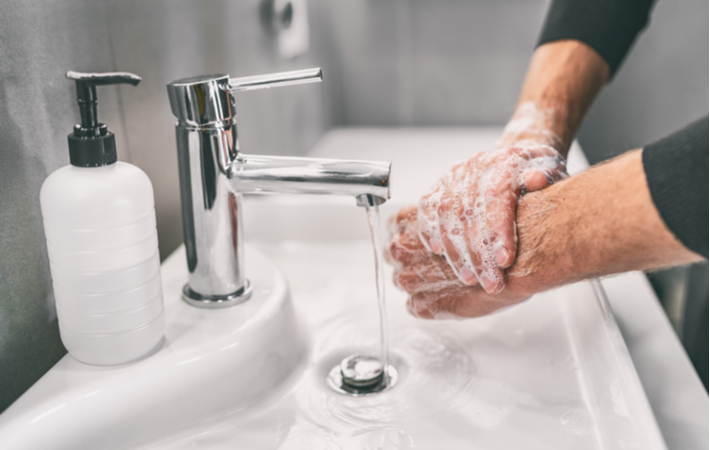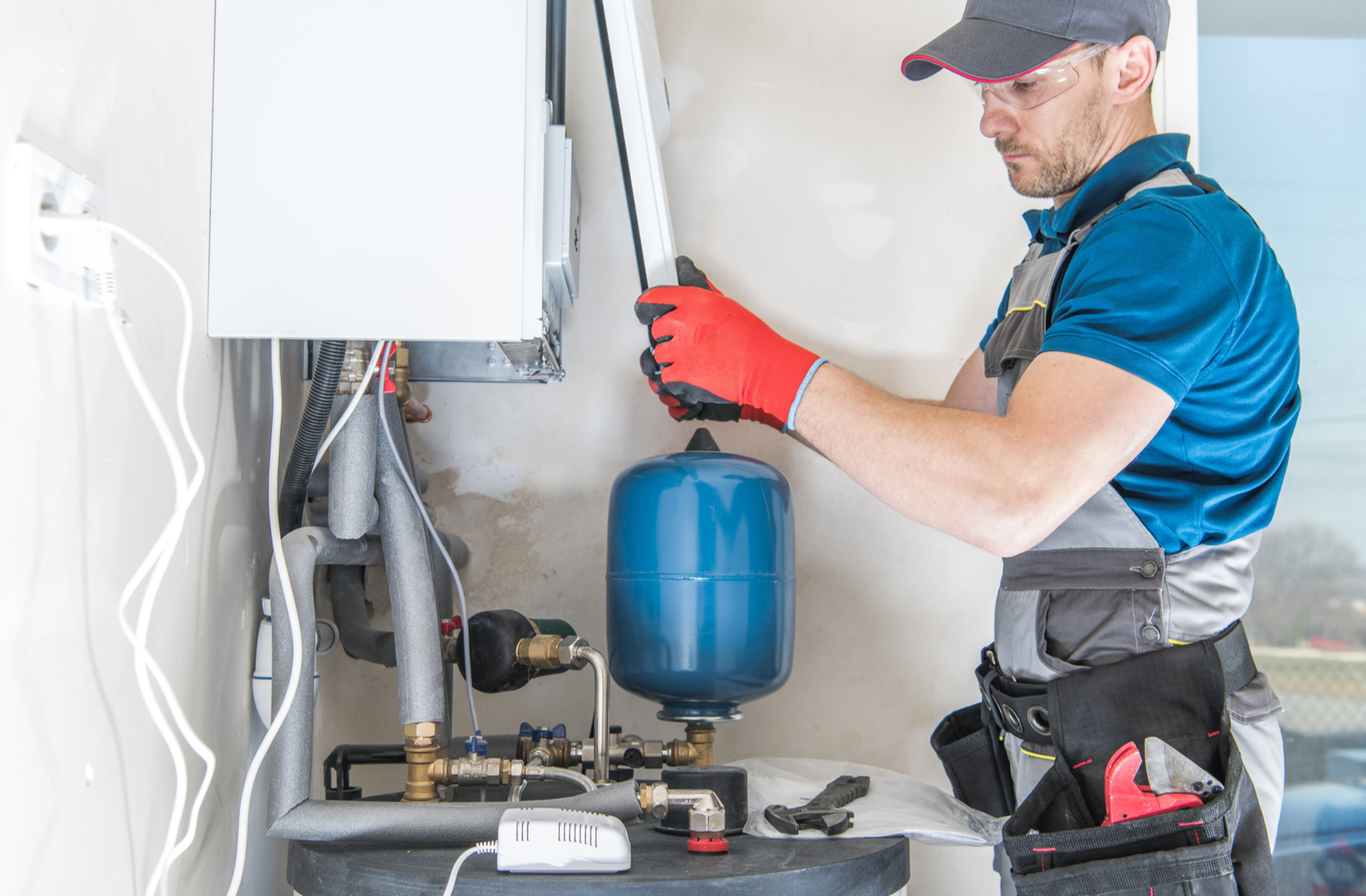COVID-19: How to Protect Your Home
COVID-19, also called the Novel Coronavirus, has everyone on edge these days. As businesses shut their physical doors, and we all practice physical distancing, many homeowners are wondering if it is safe to have HVAC technicians and repair people entering their homes.
At Limcan Certified Heating and Air Conditioning, we are taking appropriate steps to safeguard both our customers and our team members during this pandemic.
Turn to Trusted Local Resources for COVID-19 Information
Though COVID-19 is what is making people sick, it has brought with it an unfortunate friend: a pandemic of misinformation.
To help ensure you have the most accurate and up to date information to inform your decisions and help you keep you, your family, and your wider community safe, you should turn to trusted local sources.
Local health departments to Whitby and area include:
- The Regional Municipality of Durham Health Department
- Peterborough Public Health
- Haliburton, Kawartha, Pine Ridge District Public Health
- The Municipality of Port Hope
As well as Public Health Ontario and Health Canada.
Is It Safe to Let Technicians & Repair People into My Home?
Limcan Certified Heating and Air Conditioning has been classified as an essential service and continues to remain open 24 hours per day, 7 days a week. However, in light of the current pandemic, we have adapted our business practices to keep both our customers and our team members safe.
In addition to our regular precautions (such as always wearing clean uniforms and booties while working inside our customer’s homes), our technicians now use hand sanitizer and have increased their hand washing frequency.
All employees who exhibit symptoms have been asked not to report to work. If you, or someone in your household, has begun to exhibit symptoms, please let us know so we can take appropriate precautions while visiting your home.
And while we’re always happy to see you, please don’t be offended if we don’t shake your hand. We are currently practicing physical distancing.
Can Air Purifiers or Air Filters Prevent COVID-19?
Air Purifiers
UV air purifiers, when paired with humidity control, filtration, and airflow management systems, have been shown to reduce infections from other viruses.
Though scientists and public health experts are unsure if these measures can help prevent the spread of COVID-19, they can help prevent you from getting sick from other diseases, which could compromise or wear down your immune system and leave you more vulnerable.
Air Filters
COVID-19 is still a very new phenomenon, and not much is known about how effective air filters are at preventing its spread. However, air filters can filter out other particles and droplets that are roughly the same size as COVID-19 particles, which suggests that high-quality air filters that have been properly installed may help prevent the spread of this disease.
Though we still don’t know a lot about COVID-19, scientists do know that air filters with low MERV ratings (those with a rating of 8 or less) are unlikely to make a measurable difference.
What About Hospital Filtration Systems? Why Can’t I Just Get One of Those?
Hospitals rely on specially designed mechanical systems, tailored to their unique needs, to help filter and purify the air. These air filtration systems frequently work in tandem with other systems and control strategies, including UV lamps, strict humidity controls, and airflow management equipment, to ensure that the air is as clean as possible. Hospitals also have specially trained, dedicated staff that both operate and maintain this equipment to ensure it is always running at peak efficiency.
Unfortunately, the study of COVID-19 is currently still in its infancy. Until we know more about the exact nature of this disease and all the ways it can spread, whether or not air filters and air purifiers can help keep our families healthy is still unknown.
How to Keep Your Home Clean & Safe

Though we may not yet know if air filters or air purifiers can help prevent the spread of COVID-19, there are a few effective strategies you can use to help flatten the curve and quell the spread of this pandemic.
Wash Your Hands
Frequent hand washing has been proven to help prevent the spread of COVID-19. Though using hand sanitizer is a good idea as well, washing not only kills viruses but also physically removes them from your skin. Hand sanitizer kills germs but does not remove them from your skin.
You should be washing your hands for at least 20 seconds.
Hand Washing Steps
Step 1: Wet your hands using warm water.
Step 2: Apply soap (either liquid or bar soap is fine).
Step 3: Wash hands for at least 20 seconds. Make sure you scrub your palms, the back fo each hand, between your fingers, as well as your thumbs and under your nails.
Step 4: Rinse your hands thoroughly.
Step 5: Dry your hands thoroughly with a paper towel. If you are at home, you can use a clean cloth towel. Using a paper towel or a clean towel helps prevent viruses and bacteria from hanging around on our hand towels.
Step 6: Turn off tap using the paper or fabric towel. This helps prevent any bacteria or viruses on the tap from getting on your freshly-cleaned hands.
Stay Home Whenever Possible
If you are able to work from home, you should do so. By remaining at home as much as possible, you not only help reduce your chances of catching COVID-19 but also help reduce your chances of spreading it to others if you do catch the diseases.
You should only leave your house to purchase essential items, such as food or medicine, or to get some exercise. However, you should exercise at home as much as possible. If you must go out, stay as close to home as possible and practice physical distancing.
Practice Physical Distancing
When you go out, please follow appropriate physical distancing procedures. Maintain a distance of at least 2 metres (approximately 2 arm’s lengths) away from others. This helps reduce the chances of the disease spreading from person to person.
Though scientists don’t yet have enough data to definitively determine if COVID-19 is airborne, they do know that infected saliva droplets expelled while coughing, sneezing, and talking can linger in the air within a 1-meter radius, as well as settle on nearby surfaces.
When in Doubt, Self-Isolate
If you suspect that you may be ill, you should self-isolate. This means staying home for at least 2 weeks and avoiding contact with people who aren’t part of your household. This means that any groceries, medications, or other essential items you need will need to be delivered to you.
To minimize contact with others, always opt for contactless delivery whenever possible. This means that instead of passing items and cash between you and the delivery person, you should opt for a contactless payment method (such as tapping your credit card) and have the delivered items left outside on the step for you to collect.
What Do I Do if I Suspect I Have COVID-19?
If you suspect that you, or someone you live with, may have COVID-19, please take this self-assessment provided by the Government of Ontario.
Do not go to your doctor’s office, local drop-in clinic, hospital, or assessment centre unless explicitly told to do so by a medical professional.
Instead, please contact your primary care provider by phone or call Telehealth Ontario at 1-866-797-0000. Do not call 911 unless it is an emergency.
We also respectfully request that if you suspect that you or someone in your household is ill that you reschedule any appointments with us for non-essential maintenance, repairs, or installations.
For more information about the steps we are taking, or to request a quote, please visit the Limcan Certified website.





